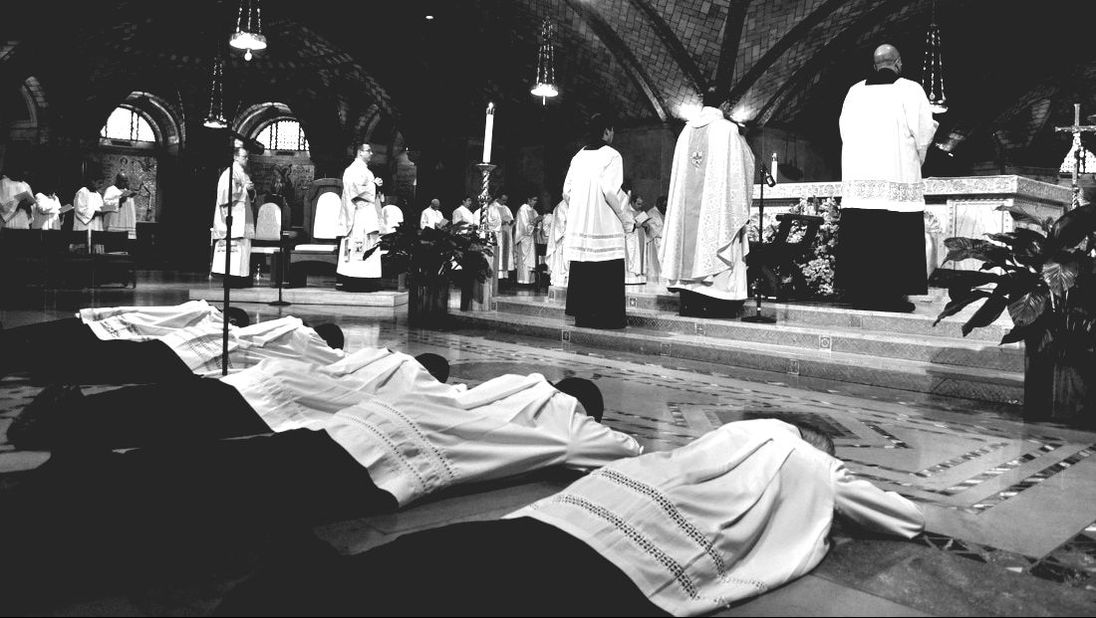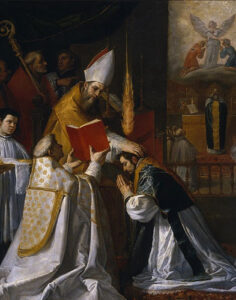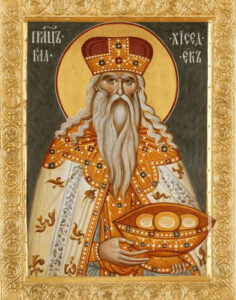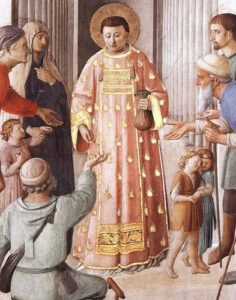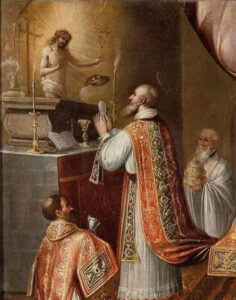Fr. Nathaniel Dreyer, IVE
Monday of the Eighth Week in Ordinary Time
Today’s first reading and Gospel remind us of the great dignity of our vocations as religious called to give up all things in order to serve Christ. In the first reading from Sirach, we heard that “to the penitent God provides a way back.” Every vocation is a “way back to God,” the path by which we return to Him once we forsake the attachments and attractions of the world. Precisely in this we see “how great [is] the mercy of the Lord, his forgiveness of those who return to him!”
In today’s Gospel, though, we see particularly how much God loves religious. The rich young man kept the precepts of the law, but wanted to go further. Mark tells us that in reply, Jesus does three things: Jesus, “looking at him, loved him and said”: Christ looked, loved, and spoke. That word looked, ἐμβλέπω, emblepó, means an engaging look. It’s not just a simply glance or a rolling of the eyes, but rather to “look at in a sustained, concentrated way, i.e., with special ‘interest, love, or concern.’”[1] Likewise, that word loved, ἠγάπησενa, ēgapēsena, also implies a special love: it’s a “discriminating affection which involves choice and selection.”[2] Jesus loved the rich young man, and, looking straight at him, selecting him out of everyone in the crowd, loved him in a special way, and, because of that love, Christ called him to follow as a disciple who gave up everything.
The rich young man was saddened because he didn’t want to give up his material goods in order to possess the eternal ones. Although Christ had loved him with a particular, exclusive love, the young man did not return in kind. For the religious, Christ’s love for us gives us the strength to surrender all things that are not Him in order to love Him alone. We, however, have to be willing to make that sacrifice.
Fulton Sheen captured this surrender and love very well in a story he recounts in his book, Way to Happiness. He writes: “Some years ago the cloister of Carmelite nuns was opened to the public on the feast of St. Therese. Many curious people poured in to see those women who led a life of silence, prayer and penance. One man who could not understand their life called the attention of a young and beautiful nun to the finest residence in the city which stood on the opposite hill. He said to her: ‘Sister, if you could have had that home, with all the wealth, luxury and pleasure that went with it, would you have left it to enter the Carmelites?’ She answered: ‘Sir, that was my home.’”[3]
As we prepare for the Lenten season, we can ask ourselves if we still cling to some possession here, something that keeps us from giving ourselves entirely to Christ. Our true happiness lies in surrendering everything to the Beloved, who gave up everything for us.
Let us ask, through the intercession of Mary, Mother of All Religious, for the grace to love Christ above all things, and to love our vocations as our means to return to Him.
[1] HELPS Word-studies, 1689.
[2] HELPS Word-studies, 25.
[3] Fulton J. Sheen, Way to Happiness (New York: Alba House, 1998): 153.

